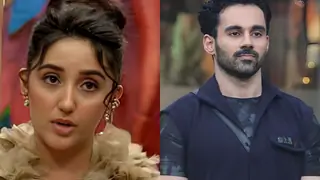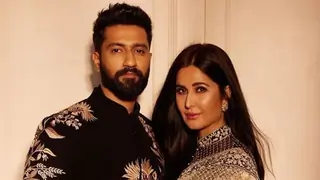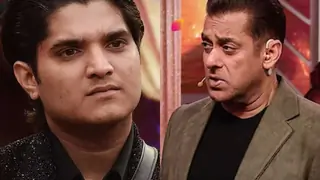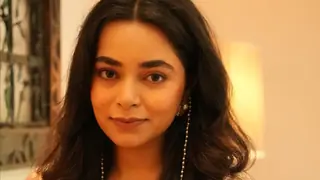Women and Hindu marriage law The term "Hindu" in post-independence Hindu law governing marriage, divorce, adoption, maintenance, guardianship and succession, describes not only persons who are Hindu by religion, but also those who are Sikh, Buddhist, and Jain. Roughly speaking, the term "Hindu" encompasses those Indians who are not Christian, Parsi, Muslim, or Jewish for the purposes of the law. What is a proper or valid Hindu marriage?Since in India various communities have different customs and ceremonies, the law says that a marriage can be performed or "solemnised" according to the customary rituals and ceremonies of the community to which either the bride or the groom belongs. It is very important to understand that the rituals and ceremonies carried out must be recognised and accepted by the community concerned as being the proper ones for formalising a marriage. For example, the law makes it very clear that in a Hindu marriage, where the ceremony includes the saptpadi, the ritual of circling the sacred fire seven times, the ceremony becomes complete and the marriage binding when the seventh round is completed. Is it possible for Hindus to marry without undergoing Hindu marriage rituals and still remain Hindu for other aspects of the law? Yes. Hindus can opt for a civil marriage, often incorrectly referred to as a "court marriage," under the Special Marriage Act, 1954. Provisions in the Act govern civil marriages and require no religious ritual or ceremony of any kind. The necessary requirement is that the persons intending to marry inform the marriage officer of the district in which at least one of them lives. The marriage officer then posts the information on a public notice board and keeps it up for 30 days. During those 30 days, any person can object to the marriage on grounds such as the intended bride is under age or that she is too closely related to the bridegroom or that she has been married before. If no valid objections are received, the couple signs a declaration in the marriage office in the presence of three witnesses. The marriage officer then issues a certificate of marriage to the couple as proof of the marriage. The Special Marriage Act, in S.21-A clearly states that if a special or civil marriage takes place between two persons both of whom are Hindus, Buddhist, Sikh or Jain, such persons continue to be governed by other aspects of Hindu personal law, such as the law relating to succession. What conditions do persons wishing to marry have to fulfill before a proper Hindu marriage can be solemnized?
What is the result of a Hindu marriage solemnised without fulfillment of the above mentioned necessary conditions? In three situations such a marriage is said to be void, which means that it is invalid, as if it never took place:
If the conditions regarding valid consent have not been fulfilled, the resulting marriage is void. That means that the party wishing to challenge it can approach the court for a decree of nullity. Once such a decree is passed, the marriage would have no legal force whatsoever. For example, if after the solemnization of the marriage it is found that the groom could not have given his valid consent because of the unsoundness of his mind, the woman can get the marriage nullified through the court. Naturally, the court must be satisfied with the proof of mental disorder and unsoundness of mind claim. If voidable marriages are not challenged in court, they remain valid for all legal purposes. But what is the remedy if a woman has been married off before she turned 18? A woman whose marriage was performed when she was under 15 years of age can reject the marriage, or "repudiate" it and get a divorce on that ground alone. She can only take the step after turning 15, but before turning 18. However, by doing so she loses the right to maintenance or alimony which a divorced woman can claim legally. If a woman has been forced into a marriage, is such a marriage void or voidable? What if a fraud has been played on her? Such marriages are voidable. If the consent of the complaining party has been obtained by force or by fraud relating to the nature of the ceremony performed or to any significant fact or circumstance concerning the opposing party, the marriage can be voided. However, a petition for annulment in such a case must be presented within one year after the force ceased to operate or the fraud has been discovered. Most important of all, the petitioner or complaining party should not have lived willingly with the other after the end of the force or after discovering the fraud. A marriage is also voidable if it can be proven that the wife was pregnant at the time of marriage by another man. In this situation the husband must file his petition within one year of the date of the marriage. If a woman is being forced to marry against her will, what remedy does she have? A woman can seek the help of the police to help her stop her marriage if she is being forced to marry against her will. However, given the level of mistrust that prevails in our society vis--vis the police, such an intervention can boomerang on the woman and may lead to more trouble. In such situations, social pressure applied judiciously might work better on her parents as opposed to legal interventions. A young woman being forced to marry against her will by her parents should first try to identify and approach influential people within her own community or extended family who have the moral clout to influence her parent's decision. Alternatively, sympathetic teachers or respected social workers in the area could also be approached for help. However, these social interventions are outside the realm of legal rights and in extreme cases where social pressure does not work, police help may be sought. Should marriages be registered? How is it done? The registration of Hindu marriages is not compulsory. However, registration of one's marriage provides proof of it for legal purposes and therefore we highly recommend it for women as a safety measure. A Hindu marriage register is found in the Office of the Registrar of Marriages, usually located in District or Divisional court compounds. The Registrar is normally some type of magistrate. A Hindu marriage can also be registered under the Special Marriage Act, 1954 if both parties so desire. If that is done, the marriage is treated as a civil marriage governed by that Act from the date of registration. What options are open to a woman whose husband marries someone else while still married to her? Is that bigamy? Yes, marrying again during the lifetime of one's wife or husband is known as bigamy. It is a criminal offence, punishable with imprisonment and fine. A bigamous marriage is void, a complete nullity (see answer to question No.5). If a woman has prima facie evidence that she is lawfully married to a man who is about to or has remarried, she can register a criminal complaint and the police are expected to stop him from getting remarried. If a wife learns that her husband is going to marry again she can get an injunction from the court forbidding the marriage before it occurs. After it has taken place, a wife can ask the court for a "declaration" that the second or bigamous marriage is null and void. Proving bigamy, however, is not easy. The complainant wife has to prove that both the marriages, her own as well as the second bigamous one, have been performed properly according to the appropriate ceremonies. Most prosecutions for bigamy fail because the complainant does not have the proof of the bigamous marriage. The accused husband can usually successfully claim against all efforts to prove the contrary that essential parts of the ceremony were never carried out and escape punishment. If a Hindu wishes to marry a person who is not a Hindu, under what law can they do so? If the couple wishes to have a religious marriage governed by Hindu law, then the non-Hindu partner must convert to Hinduism. If the non-Hindu partner is a Christian then it is also possible for the couple to marry according to Christian rites under the Indian Christian Marriage Act, 1872. Christian Personal Law then governs the marriage. The third option, in some ways the simplest, is to have a civil marriage under the Special Marriage Act which facilitates marriages between any two people, including members of any two religious communities. It does not involve conversion and also permits people to avoid various complications that arise from marriages under various religion-based personal laws. What rights does a Hindu child, who is born to persons whose marriage is declared void or voidable have under the Hindu Marriage Act? Such a child is considered legitimate regardless of the status of the parent's marriage, if the marriage was performed according to Hindu rites under the Hindu Marriage Act, 1955 or was a civil marriage under the Special Marriage Act, 1954. Such a child may inherit the property of his parents. However, he/she does not acquire rights in relation to joint family or ancestral property. Manushi, Issue 136 - Feedback: Tell us what you think of this article |



































